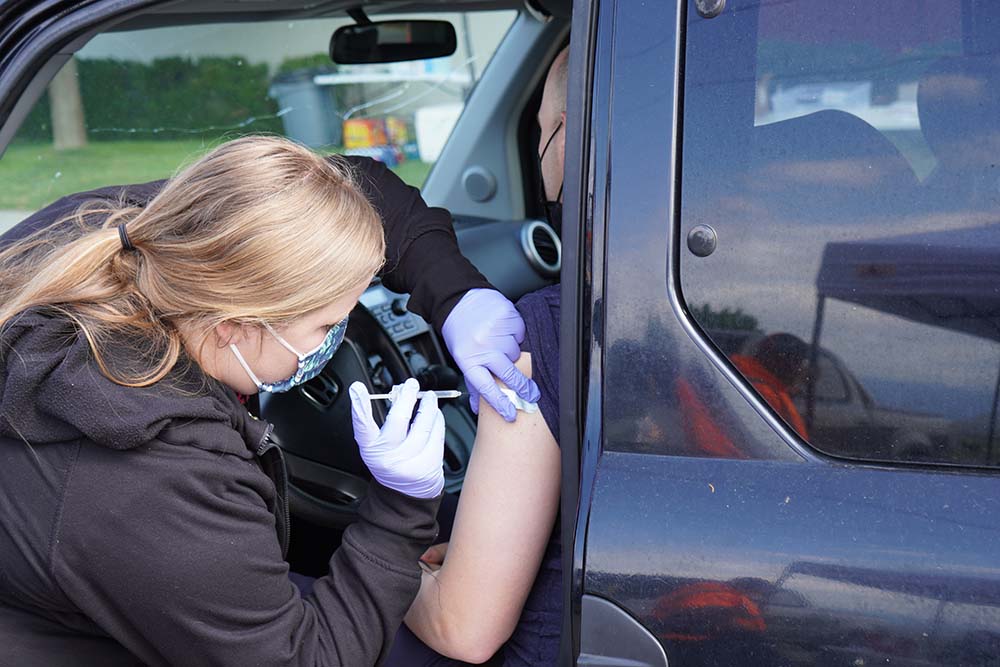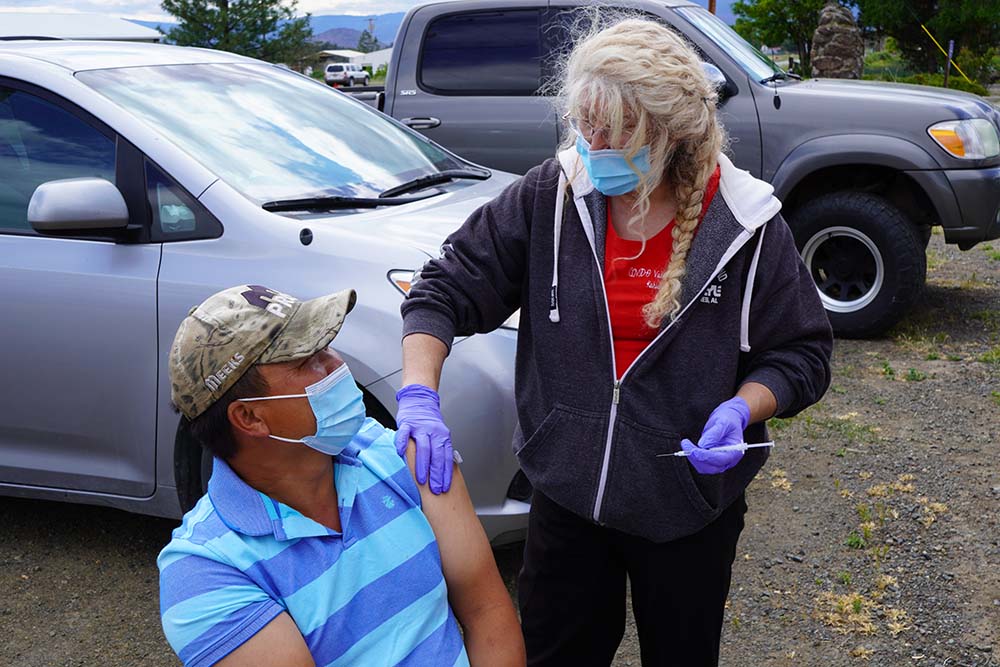
- Details
- By Ricki McCarroll, Tribal/AIAN Media Outreach Lead, State of California COVID-19 Awareness Campaign
California has experienced many crises this past year. In each instance, tribal governments in California have stepped up to these crises by providing services and thoughtful solutions for citizens regardless if they are tribal members or not.
Located in one of the most remote regions in California, the Karuk Tribe, whose traditional lands lie in remote northern California and include the three towns of Yreka, Happy Camp, and Orleans in Siskiyou County are one of these tribal governments responding to these crises through service to the surrounding community.
Providing emergency services during the 2020 forest fires, addressing housing shortages, and responding directly to the COVID-19 pandemic, the Karuk Tribe has overcome challenges through the compassion and resiliency of self-governance.

One of the only health care providers within 90-minute driving radius, the Karuk Tribal Clinic has been the sole health provider to Karuk tribal members and county residents for years. In responding to the COVID-19 pandemic and vaccination protocols, the Karuk Tribe is looking to utilize every dose of the vaccines that make it into the clinic doors.
“Everyone has the right to health care and we believe that anyone who would like to be vaccinated should have access to protect themselves, their families, and their communities,” said Karuk Tribal Chairman Russell (Buster) Attebery.
At their most recent vaccination event, the Karuk Tribe partnered with the State of California COVID-19 Awareness for Native Communities and Vaccinate ALL 58 campaign to bring vaccines to a remote location after the tribe noticed low vaccination rates in some of the neighboring communities.
Since December of 2020, the Karuk Tribe estimates that it has administered about one-fifth of the total vaccines in Siskiyou County that includes tribal members and those from the surrounding community.
Furthering the conversation on the positive impact of tribal governments across the country, the Karuk Tribe joins hundreds of tribal nations prioritizing the best interest for their citizens and the health and wellbeing for the surrounding local communities.
Help us defend tribal sovereignty.
At Native News Online, our mission is rooted in telling the stories that strengthen sovereignty and uplift Indigenous voices — not just at year’s end, but every single day.
Because of your generosity last year, we were able to keep our reporters on the ground in tribal communities, at national gatherings and in the halls of Congress — covering the issues that matter most to Indian Country: sovereignty, culture, education, health and economic opportunity.
That support sustained us through a tough year in 2025. Now, as we look to the year ahead, we need your help right now to ensure warrior journalism remains strong — reporting that defends tribal sovereignty, amplifies Native truth, and holds power accountable.
 The stakes couldn't be higher. Your support keeps Native voices heard, Native stories told and Native sovereignty defended.
The stakes couldn't be higher. Your support keeps Native voices heard, Native stories told and Native sovereignty defended.
Stand with Warrior Journalism today.
Levi Rickert (Potawatomi), Editor & Publisher
